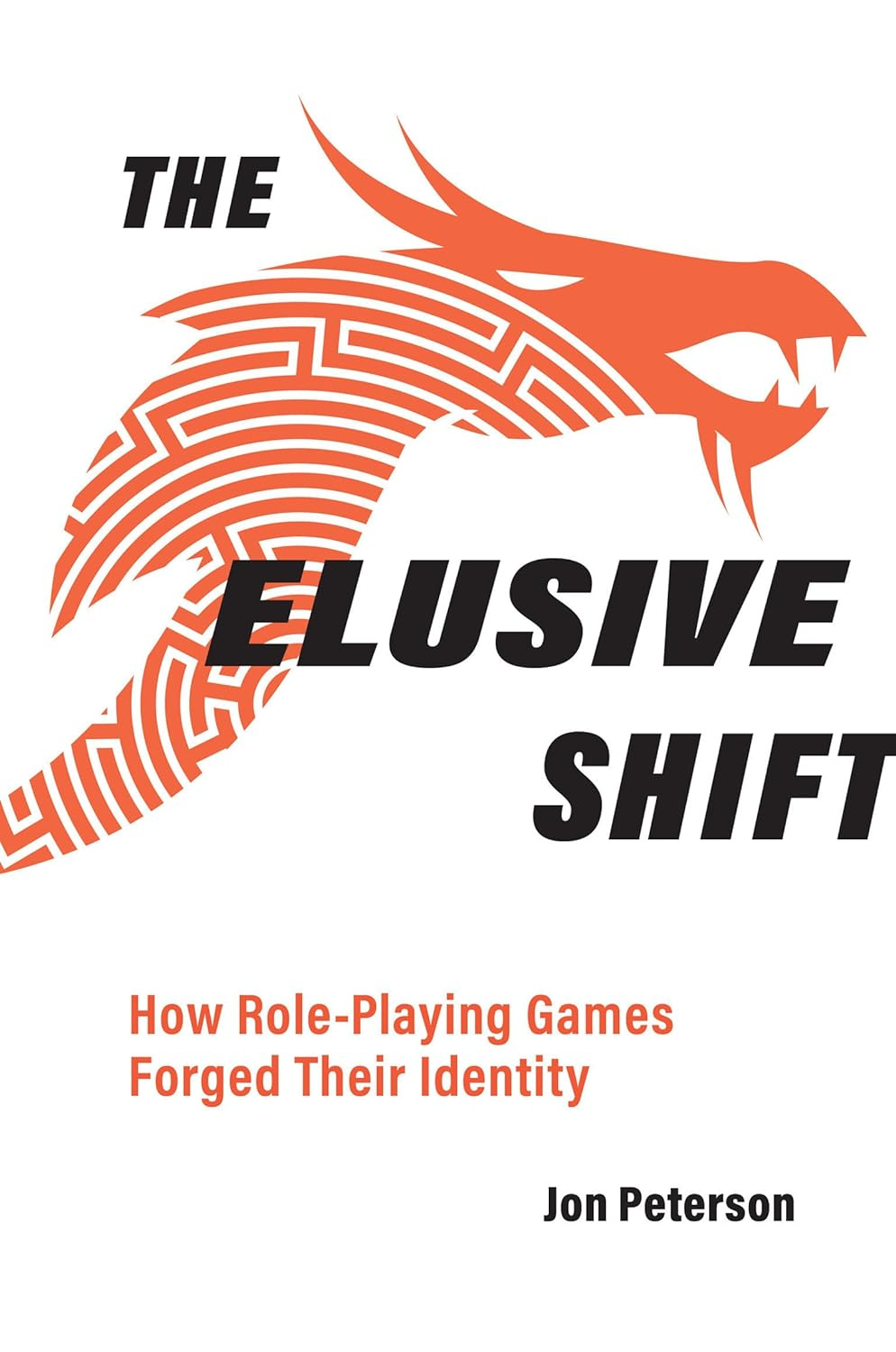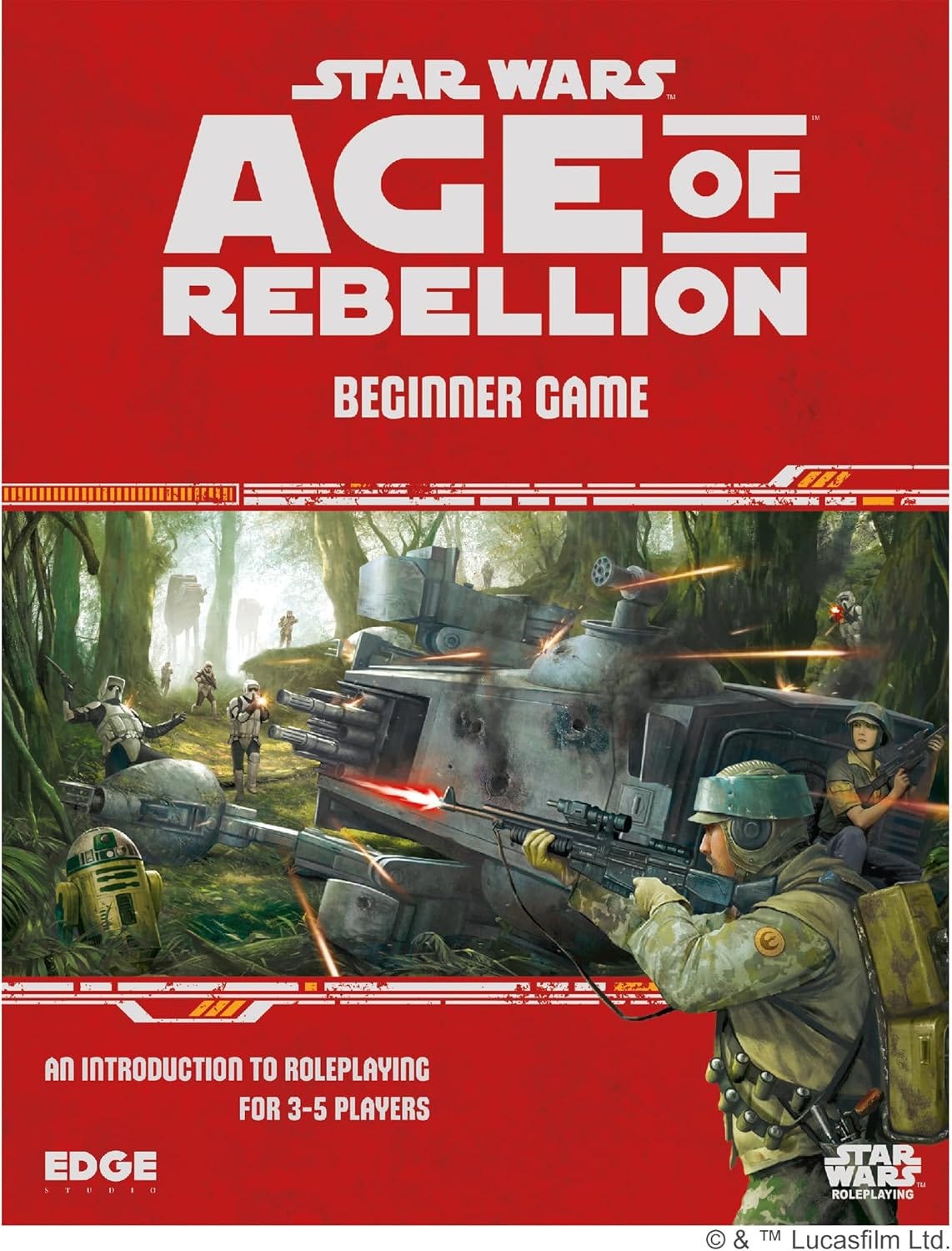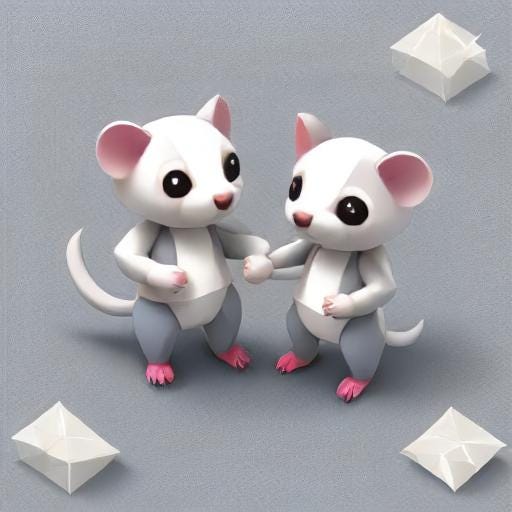Opossum Paper #17
Interacting with your opponent after a match, an actress teaching an actor about D&D, and the Star Wars TTRPG by FFG.
In this newsletter…
Blog: Post-match interaction with your opponent, win or lose.
Content watch: a famous actress teaches a famous actor about D&D, plus some other things.
Blog: Post-match interaction with your opponent, win or lose
I'm writing this Opossum Paper as I sit consuming content on a big TCG weekend. The Pokémon World Championship is running through day two in its classic full spectacle, and Yu-Gi-Oh is on day one of its North American Championship Series. I've never really played Yu-Gi-Oh, so I have absolutely no idea what's going on. One guy just played 15 cards or so, tutored a bunch, and his opponent conceded. I think I'm going to download the app.
ANYWAYS, one of the things I've noticed out of watching high level play is how kind everyone has seemed. In victory or defeat, people have been gracious. This got me thinking broadly about TCG culture. Now, discussing TCG culture can (and should) take a whole book. So in lieu of writing a book, let's talk about sportsmanship in TCGs.
More specifically, let's talk about what to say after a match. Most of the time, you'll either win or lose (games hate draws now days). How you respond after each of these events say a lot about your character. That being said, I recognize competition creates a tense environment, and when it's suddenly over, it can be awkward.
I don't claim to have the only way to handle these situations, but I do have a pretty good system that has really cut down on awkward moments with more objectionable folks. The potential for awkward situations is a large part of my social anxiety, and so I've developed this “system” for what to say.
When you've lost
I think the post-match conversation is easiest when you've lost. So let's start there. It's easiest because you get to drive the conversation and set aside the biggest problem with TCG players: the ego. What goes wrong in most post-match conversations is the winning player running afoul (often inadvertently) of the losing player's ego.
So, when I lose, I act as I would like a loser to act. I strive to always do at least two things:
Say “good game” and “well played”;
Offer a handshake. Some people are weird about handshakes these days, but it's still an appropriate social norm, and it's polite. If they decline, it's fine; and
Compliment one particular play your opponent made.
From there, I let my opponent drive the conversation while I pack up my stuff. I've deescalated any tension from the match, been a gracious loser, and I pass the baton to my opponent to carry on the conversation. If they want to keep the conversation short and move on, that's perfect. If they want to discuss specific parts of the game, I do that too.
I struggle a lot more when I've won the game…
When you've won
Congratulations, you've won your match. Mission accomplished. Now, you have to deal with your opponent's ego. Remember, that's the biggest thing to play around when trying to avoid post-match awkwardness. If your opponent is even mildly competitive, their ego will be (at least temporarily) bruised. It's only natural to hate losing.
If I'm a chameleon when I lose, I'm even more of one when I win. If my opponent says, "Good game," I say, “Thanks. You too.” If my opponent offers a handshake, I take it. If my opponent wants to talk about key parts of the match, I chat about them as I pack up my stuff. Once I get packed, I find a good stopping point for any existing conversation and say, “Good luck the rest of the day.” Then, I'm out of there.
So why do I consider things to be harder when losing? People can be awful when they lose. Even though being frustrated is natural, some people never learned how to handle it properly. If you've played competitive cards at all, you know what I'm talking about. Your opponent can't shut up about how unlucky they were, how lucky you were, or if they were actually “trying” they would have beaten you.
I hate this. I know no one likes it, but I hate it. It really stresses me out. Let me clear: you don't owe anyone the time to sit there and let them be rude to you. I advocate for doing the following with people like this: call a judge and let them know you've been insulted. Most tournament procedures have policies in place that penalize this behavior. Second, get out of the situation as fast as possible. Don't get your opponent the time of day.
I know a lot of people don't like the confrontation of standing up for yourself or calling a judge, but calling this player out is a net positive for the community. It's also an opportunity to educate the offending player. While I doubt it, maybe your opponent didn't know their behavior was having a negative impact on others and needed to learn.
In Short
Again, I don't want to pretend that this “system” (if you can even call it that) for how to handle post-match interactions is the best way to handle these things. If you don't struggle with micro-interactions, this probably seems silly. After all, just talking to your opponent after engaging in a shared hobby together should be easy.
But if these micro-interactions stress you out as much as they do me, and want to minimize their interactions with their opponent, consider this system. Also, I do think the system is a good courtesy: when I lose, I get to lose graciously, and when I win, I get to respect however my opponent is feeling at that moment.
What do you think?
Content Watch - Things I’ve enjoyed this week
This new “content watch” segment will feature three, sometimes two or four, pieces of content I’ve consumed since the last Opossum Paper that I want to share. Sometimes it will be TCG oriented, but not always. It will typically be nerd adjacent, but always something I am interested in. I hope you like it too!
Deborah Ann Woll Teaches Jon Bernthal Dungeons and Dragons
I usually won’t be recommending videos this mainstream. Jon Bernthal doesn’t need the Opossum Papers to get his big break, after all. I chose this video because of how simply Deb Woll explains D&D and why we love it. She also gracefully integrates Jon into playing D&D without him even knowing it.
It’s a really good lesson in having an elevator pitch ready for the biggest parts of your life. Deb has clearly thought about how to take someone with zero background knowledge on D&D and get them familiar with it quickly. She instantly transports Jon to the her fantasy world, and then has a beautiful explanation of why the game means so much to her.
If you like this eight minute clip, you should check out the full interview. It’s fantastic.
The Three Best Decks in Star Wars Unlimited - Shadows of the Galaxy
I'm in full prep mode for Star Wars: Unlimited Planetary Qualifier Season. You’ll know that because I'm watching meta guides and deck techs. I don't typically enjoy this content, but I needed a GenCon tournament recap, and I really like this video.
KTOD does a survey of GenCon results, breaking down the top performers from that event. He goes through each deck, its strengths and weaknesses, and its expected role in the meta going forward. He also does a more typical meta-ranking list at the end, so if that's what you're after, it's there.
If you play Star Wars: Unlimited, this is a good video. If you don't, but dabble in other TCGs, this is a great example of how the meta-analysis genre of videos could look.
The Elusive Shift: How Role-Playing Games Forged Their Identity

That's right! Books can show up here! Over the last two years, I've really tried to become a reader again. It also probably explains why I've picked up my writing habit. Reading is good for your brain, and you can tell stories and communicate ideas in a different way (and in my opinion, better) with writing.
The Elusive Shift seeks to analyze the shift in tabletop gaming from war gaming (replicating historic conflicts) to role playing (you're a wizard Harry!). I'm about halfway through it right now, and I’m really enjoying it. The author analyzes historic fan “zines”, and that alone is worth the price of admission.
Why did D&D become a role playing game and not a war game? In other words, why don't we reenact the Spanish War and instead take the hobbits to Isengard? There isn't a clear answer from what I understand, and that's really exciting.
Even if you're not a tabletop gamer, actual historic analysis of our space is really exciting to see. I read a book last year on the evolution of ComicCon, and while I'm not a comic person, the analysis was really good. Maybe I'll cover that book here next time! My point is that analysis of subjects adjacent to your hobbies is worth your time.
What to Play
This section will be to discuss whatever I'm currently playing. This could mean decks in TCGs (remember, Star Wars PQ season is upon us…), but it could also be board games, video games, or even mobile games…yes, I'm a sucker.
Right now, I’m enthralled with the Star Wars RPG system by Fantasy Flight Games…

My friend Teage (who has guest authored on this newsletter before) ran this intro box for us. I haven't played a narrative system like this before, so I wasn't sure what to expect.
Unlike a D20 system (like D&D) where the roll of a 20 sided dice dictates most of the results, these systems are a bit more involved. In the FFG RPG, you roll various dice that have good things on some and bad things on others.
On one hand, there are “successes” and “failures”. If you have more successes than failures, congratulations. You succeed at the thing you were trying to do. On the other hand, you also have “advantages” and “disadvantages”. If you have more disadvantages than advantages, bad things happen - even if you succeed at your primary objective. If you have more advantages, good things happen in addition to your success or failure.
For example, let's say you're trying to hack into a computer to steal some files. Maybe you succeed on your check but have some disadvantages. The disadvantage could be represented as you not covering your traces. Anyone inspecting the computer afterwards would know you hacked in. If you had advantages, maybe you made it look like someone else did the hacking!
This allows the players and the DM to tell a really good story together beyond just “I hit the guy for 5 damage” and “okay you pass your skill check”. I'm not a strong role player, so this system really pushed my boundaries as a player.
There are multiple versions of this system, with various core rule books. They all interplay together, so I encourage you to just grab a beginner set, pick an unlucky sap to DM, and give it a go.
Conclusion
I hope you enjoyed this revamped edition of the Opossum Papers. I'm not going to commit to a schedule or goals for the newsletter (though I do have those in mind). I just don't want to set false expectations. So you don't miss an edition, I encourage you to subscribe, for free. You'll get these delivered right into your inbox. There’s a little button right here!
If you like my general vibe, please also consider checking out the podcast I do with friend Dan Norton. It's called the Columbus Card Guys, and it's available on all major podcast platforms. You can also check it out right here:


